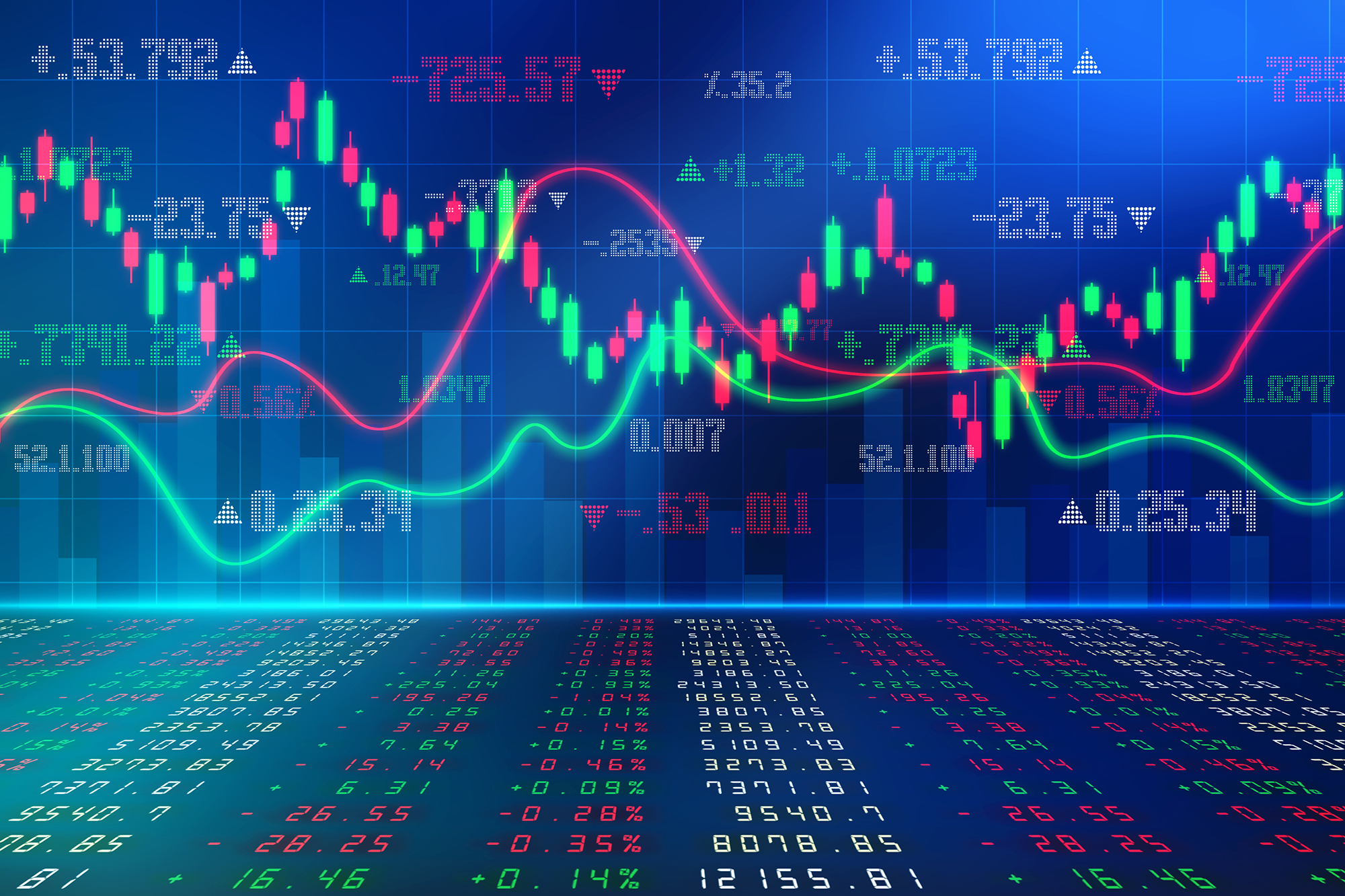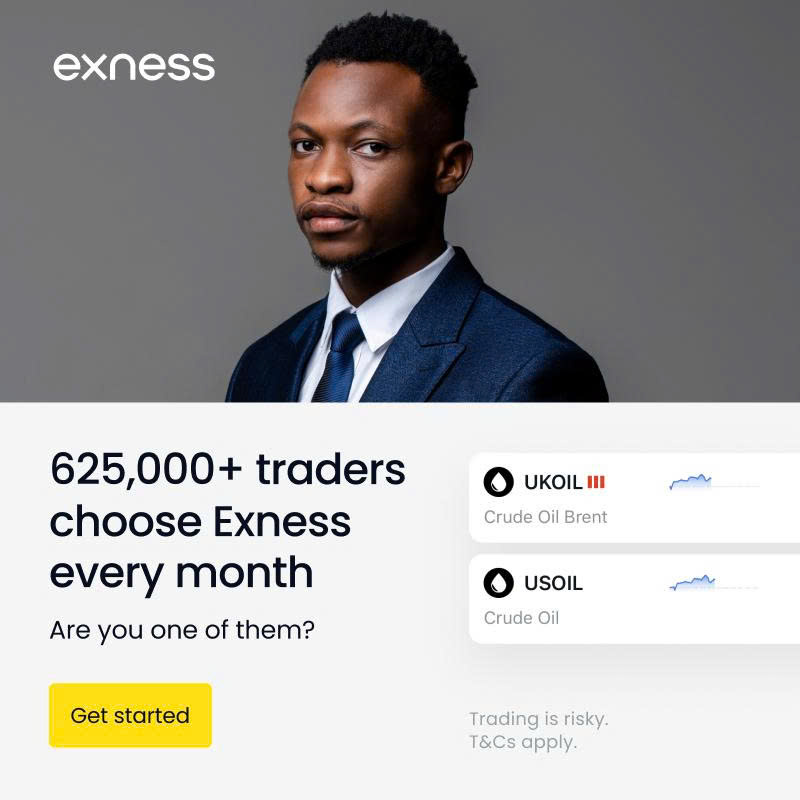
7 minute read
Is Forex Going To Be Banned in South Africa? Let’s Clear The Air
from Exness
by Exness Blog
Rumors have been swirling about whether forex trading is facing a ban in South Africa. If you’re a trader or someone curious about dipping your toes into the forex market, this question might be keeping you up at night. The short answer? No, forex trading is not going to be banned in South Africa. In fact, the forex market in South Africa is thriving, tightly regulated, and showing no signs of being shut down. But let’s unpack this topic in a easy-to-digest way, dive into the details, and address why these rumors exist, what’s actually happening, and what you need to know as a trader in 2025.
Top 4 Best Forex Brokers in South Africa
1️⃣ Exness: Open An Account or Visit Brokers 🏆
2️⃣ XM: Open An Account or Visit Brokers 💥
3️⃣ JustMarkets: Open An Account or Visit Brokers ✅
4️⃣ Quotex: Open An Account or Visit Brokers 🌐
Why Are People Worried About a Forex Ban?
First, let’s tackle the elephant in the room: why are people even talking about a forex ban? South Africa has a complex financial landscape, with strict exchange controls enforced by the South African Reserve Bank (SARB) and oversight from the Financial Sector Conduct Authority (FSCA). These regulations can feel restrictive, especially for those new to forex trading. Add to that the occasional news about scams or unlicensed brokers, and it’s easy to see why some might fear a crackdown.
The truth is, South Africa’s strict rules aren’t about banning forex trading—they’re about protecting traders. The FSCA has been cracking down on unlicensed brokers since 2019, requiring all forex brokers to hold an Over-the-Counter Derivative Provider (ODP) license (FSP Category 1.13). This has led to some brokers exiting the market or facing penalties, which might spark rumors of a broader ban. But rest assured, regulated forex trading is alive and well.
The State of Forex Trading in South Africa in 2025
South Africa is a forex powerhouse in Africa, with over $2 billion traded daily and 190,000 active users. The market is growing, not shrinking, and the FSCA’s regulations ensure it’s a safe space for retail traders. Here’s why forex trading is here to stay:
Strong Regulation, Not Prohibition: The FSCA’s role is to ensure transparency and ethical practices. Licensed brokers like AvaTrade comply with Anti-Money Laundering (AML) and Know Your Customer (KYC) protocols, keeping client funds safe in segregated accounts with banks like ABSA. These rules don’t restrict trading; they make it more secure.
SARB’s Exchange Controls: The South African Reserve Bank regulates cross-border currency movements to prevent capital flight. While this adds some compliance steps, it’s not a barrier to trading. Platforms like Future Forex even handle SARB and SARS compliance for free, making it easier for traders to move money internationally.
Growing Accessibility: Forex trading is more accessible than ever. Brokers offer ZAR-based accounts, reducing conversion fees, and digital platforms like XGlobal Africa provide educational resources for beginners. Banks like Standard Bank and Absa also facilitate forex transactions for hedging or international payments.
No Ban on the Horizon: Recent news confirms South Africa’s forex reserves hit an all-time high of $68.415 billion in June 2025. This shows a healthy financial system, not one gearing up to ban forex trading. If anything, the government and regulators are focused on strengthening the market, not dismantling it.
Where Do the Ban Rumors Come From?
Misinformation often fuels fear. Here are the main culprits behind the “forex ban” rumors:
Crackdowns on Scams: South Africa has seen its share of forex scams, with unlicensed brokers preying on inexperienced traders. The FSCA’s actions against these bad actors might be mistaken for a broader attack on forex trading itself. In reality, these crackdowns protect legitimate traders.
Crypto Confusion: A recent court ruling clarified that digital assets like Bitcoin aren’t subject to SARB’s forex controls because they’re not considered currency. Some traders confuse this with forex regulations, but forex (fiat currency trading) is entirely separate and tightly regulated.
High Fees and Bureaucracy: South African banks charge 2-3% on forex transactions, raking in over R15 billion annually. This has led to frustration, with some assuming the government might step in to overhaul or restrict the system. Instead, disruptors like Future Forex are offering cheaper alternatives, showing the market is evolving, not disappearing.
Global Economic Jitters: The South African rand’s volatility, influenced by commodity prices and global events like U.S. tariff threats, can make traders nervous. But this affects currency value, not the legality of trading.

✅ Trade with Exness now: Open An Account or Visit Brokers 👈
What Traders Need to Know to Stay Safe
If you’re trading forex in South Africa or thinking about starting, here’s how to navigate the market confidently:
Choose a Regulated Broker: Always verify that your broker is FSCA-licensed. Check their Financial Services Provider (FSP) number. Brokers like Fusion Markets and Exness offer low spreads and comply with strict regulations.
Understand Exchange Controls: South Africans are limited in how much they can move offshore (e.g., R1 million discretionary allowance and R10 million investment allowance per year). Work with platforms that streamline SARB compliance to avoid headaches.
Educate Yourself: Platforms like XGlobal Africa offer courses on candlestick patterns, risk management, and more. Knowledge is your best defense against scams and losses.
Manage Risks: The rand’s volatility, driven by factors like gold prices or political events, can be a double-edged sword. Use stop-loss orders, avoid overleveraging, and keep emotions in check.
Explore Alternatives to Banks: Traditional banks charge high fees, but digital platforms like Future Forex offer 30-50% cheaper rates and user-friendly apps. This makes forex trading more affordable without relying on clunky bank services.
Why 2025 Is a Great Time to Trade Forex in South Africa
Far from being banned, forex trading is booming. Here’s why now is an exciting time to get involved:
Tech-Driven Platforms: Digital forex platforms are making trading faster and cheaper. Apps let you trade from your phone, track payments, and manage compliance with ease.
Educational Resources: Brokers are investing in beginner-friendly tools. Whether you’re learning about pips or advanced charting, there’s no shortage of resources to build your skills.
Economic Opportunities: South Africa’s economy is tied to global commodity markets, making the rand a dynamic currency to trade. With gold and platinum prices impacting the ZAR, savvy traders can capitalize on these movements.
Regulatory Clarity: The FSCA’s oversight ensures a safer trading environment. Unlike the murky crypto space, forex trading has clear rules, giving traders peace of mind.
Addressing the Naysayers
Some skeptics might point to South Africa’s stringent exchange controls or recent crypto rulings as signs of a tightening grip on forex. But these are misinterpretations. The crypto ruling, for instance, highlights a looser regulatory stance on digital assets, not fiat currencies. Forex trading operates under a well-established framework, and the SARB’s focus is on compliance, not bans.
Others might argue that high bank fees or bureaucratic hurdles signal trouble for forex trading. While banks do overcharge, the rise of digital platforms like Future Forex is proof that the market is adapting to meet traders’ needs. The system isn’t perfect, but it’s far from collapsing.
Final Thoughts: No Ban, Just Opportunity
So, is forex trading going to be banned in South Africa? Not a chance. The market is robust, regulated, and growing, with no evidence of a ban on the horizon. Instead of worrying about rumors, focus on choosing a reputable broker, understanding the rules, and honing your trading skills. South Africa’s forex scene is vibrant, and 2025 is shaping up to be a fantastic year to dive in or level up your trading game.
If you’re ready to start, check out FSCA-licensed brokers, explore platforms like XGlobal Africa for education, or consider cost-effective alternatives like Future Forex for international transfers. The forex market isn’t going anywhere—except maybe up, if you play your cards right.
✅ Trade with Exness now: Open An Account or Visit Brokers 👈
Read more:










